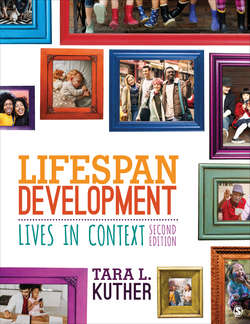Читать книгу Lifespan Development - Tara L. Kuther - Страница 170
На сайте Литреса книга снята с продажи.
Maternal Illness
ОглавлениеDepending on the type and when it occurs, an illness experienced by the mother during pregnancy can have devastating consequences for the developing fetus. For example, rubella (German measles) prior to the 11th week of pregnancy can cause a variety of defects, including blindness, deafness, heart defects, and brain damage, but after the first trimester, adverse consequences become less likely (Bouthry et al., 2014). Other illnesses have varying effects on the fetus. For example, chicken pox can produce birth defects affecting the arms, legs, eyes, and brain; mumps can increase the risk of miscarriage (Mehta, 2016; Webster et al., 2018). In addition to posing risks to development, some sexually transmitted infections (STIs), such as syphilis, can be transmitted to the fetus during pregnancy (Tsimis & Sheffield, 2017). Others, such as gonorrhea, genital herpes, and human immunodeficiency virus (HIV), can be transmitted as the child passes through the birth canal during birth or through bodily fluids after birth. Since some diseases, such as mumps and rubella, can be prevented with vaccinations, it is important for women who are considering becoming pregnant to discuss their immunization status with their health care provider.
Some illnesses with teratogenic effects, such as the mosquito-borne Zika virus, are not well understood. Children born to women infected with the Zika virus are at greater risk of microencephaly, reduced head size (Prakalapakorn, Meaney-Delman, Honein, & Rasmussen, 2017). They may also show a pattern of defects now known as congenital Zika syndrome, which includes severe microcephaly characterized by partial skull collapse, damage to the back of the eye, and body deformities, including joints and muscles with restricted range of motion (Centers for Disease Control and Prevention, 2017c; D. L. Moore, 2017).
